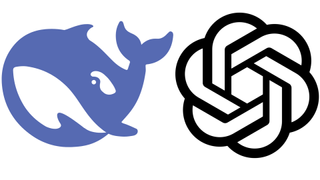Refresh
I also asked both models to finish an impossible sequence: house, Saturn, dog, burger, ?
The correct answer would’ve been to acknowledge an inability to answer the problem without further details but both reasoning models attempted to find an answer anyway.
Both reasoning models attempted to find an answer and gave me a completely different one. DeepThink R1 answered “yellow” because it thought the words were related to their color (white house, yellow Saturn, brown dog, yellow burger). ChatGPT o1, on the other hand, answered “car” because it found the sequence almost impossible but decided to offer answers based on “a common puzzle approach.” The approach it chose to offer up was linking each item into the bigger category it belongs to (house = building, Saturn = planet, dog = animal, burger = food, and car = vehicle).
Questions like this, with no proper answer often stump AI reasoning models, but o1’s ability to offer a solution rather than the actual answer is a better outcome in my opinion.
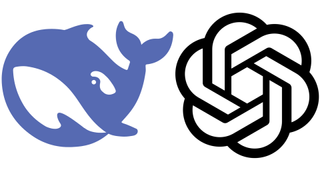
In my comparison between DeepSeek and ChatGPT, I found the free DeepThink R1 model on par with ChatGPT’s o1 offering. I pitted the two against each other with different problems to see what answer each model could come up with.
While I’m aware asking questions like this might not be how you’d use these reasoning models on a daily basis they’re a good way to get an idea of what each model is truly capable of.
The first problem I asked was: Find the missing word: Apple, Red, Coal
To be perfectly honest, I think this is a fairly simple problem that both models should’ve been able to solve without any issues or guidance.
ChatGPT o1 not only took longer than DeepThink R1 but it also went down a rabbit hole linking the words to the famous fairytale, Snow White, and missing the mark completely by answering “Snow”.
DeepThink R1, on the other hand, guessed the correct answer “Black” in 1 minute and 14 seconds, not bad at all.
John-Anthony Disotto, TechRadar’s resident Senior AI Writer, taking over this DeepSeek live coverage.
It feels like a lifetime ago I was writing my first impressions of DeepSeek on Monday morning. Since then everything has changed, with the tech world seemingly scurrying to keep the stock markets from crashing and huge privacy concerns causing alarm.
Over the next hour or so, I’ll be going through my experience with DeepSeek from a consumer perspective and the R1 reasoning model’s capabilities in general. There’s plenty to talk about, so stay tuned to TechRadar’s DeepSeek live coverage for all the latest news on the biggest topic in AI.
The growing DeepSeek skepticism
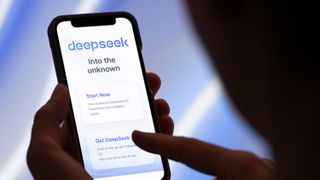
Not all AI commentators agree that DeepSeek justifies its hype – and somewhat echoing the thoughts of TechRadar’s Editor-at-Large Lance Ulanoff (see ‘Don’t get too attached to DeepSeek – it’ll never survive in the US‘) are the observations of Dan Goman (CEO of Ateliere Creative Technologies) below.
For our expert DeepSeek commentary roundup, he told us: “The market’s reaction to the latest news surrounding DeepSeek is nothing short of an overcorrection. While the enthusiasm around breakthroughs in AI often drives headlines and market speculation, this feels like yet another case where excitement has outpaced evidence. Investors should be cautious about blindly jumping on the hype train without asking the tough questions”, he noted.
“In summary, while Deepseek’s story is intriguing, it’s imperative to separate fact from speculation. The market needs to temper its enthusiasm and demand more transparency before awarding DeepSeek the crown of AI innovation. Until then, skepticism remains a healthy and necessary stance” he added.
This morning’s recovery in Nvidia’s stock seems to suggest that there was something of an overcorrection yesterday, but DeepSeek’s impact does still feel significant – particularly given OpenAI’s reported claims (reported by the Financial Times) that it could have an intellectual property claim against its Chinese rival.
Perplexity offers DeepSeek workaround
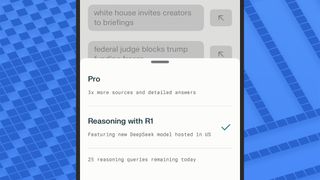
The DeepSeek furore has raised lots of privacy concerns from those who’ve scoured its terms and conditions – the standout line being “we store the information we collect in secure servers located in the People’s Republic of China”.
But because DeepSeek is open source, some potential workarounds have emerged for the data-concerned. One is Perplexity AI, which is now offering Perplexity AI within its (albeit paid) Perplexity Pro offering for both the web and, as of this morning, its iOS app.
There are limits on the number of queries, but it sidesteps two potential concerns – one around censorship (Perplexity claims its version is uncensored) and the other around those concerns about the chatbot sending your data back to the Chinese government.
A Perplexity Pro account does cost $20 (about £16 / AU$32) a month or $200 (about £160 / AU$320) a year, so it lacks the ‘free’ appeal of the original DeepSeek app – but short of creating a virtual machine inside Windows 11 to run it safely, this could be an example of an acceptable middle ground for the DeepSeek curious.
A lesson in unintended consequences?
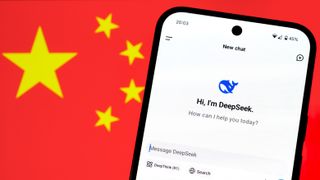
While OpenAI could now, according to the Financial Times , contest the legality of DeepSeek’s training, many AI experts have commented that it still shows the limitations of US sanctions on Chinese tech – and even illustrates that they can have the opposite of their intended effect.
Nigel Green, CEO of deVere Group (an international financial consultancy), told us: “This is a wake-up call for markets. The assumption that tariffs could contain China’s technological ambitions is being dismantled in real time. DeepSeek’s breakthrough is proof that innovation will always find a way forward, regardless of economic barriers,” he said.
“By restricting China’s access to high-end semiconductors, Washington sought to slow its progress in AI. Instead, it has fueled an acceleration in domestic innovation, forcing Chinese firms to find alternatives. DeepSeek’s achievement is a direct result of this shift,” he added.
“Rather than being crippled by US sanctions, Beijing has cultivated AI models that require significantly less computing power, diminishing its reliance on American technology and eroding US leverage over global supply chains” Nigel Green concluded.
It seems OpenAI could now be pulling a lever in response – with potential accusations of intellectual property theft, according to that Financial Times article. But it remains to be seen whether or not those claims are accurate – or if legal pressure can coax the open-source genie unleashed by DeepSeek back into its bottle…
What are AI experts saying about DeepSeek?
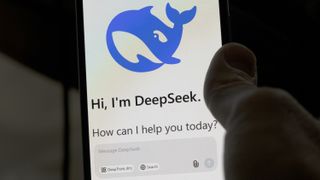
The DeepSeek story is a complex one (as the new reported OpenAI allegations below show) and not everyone agrees about its impact on AI.
We’ve gathered some expert opinions from across the AI spectrum to get a rounded picture of what it all means, and I’ll go through some now.
Let’s start with one that sits somewhere in the middle from Steve Povonly (Senior Director of Security Research & Competitive Intelligence at Exabeam, who are a global cybersecurity firm).
“The release of Chinese-developed DeepSeek has thrown US tech markets into turmoil; this is both justifiable and also perhaps, a bit overblown,” he told us.
“The emergence of a technology that ultimately optimizes chip usage and efficiency is likely to apply pressure on existing large chip vendors, which is a very good thing” he added, which certainly seems to be the case based on Nvidia stock (which has rebounded after a huge drop yesterday).
“As the adage goes: “Pressure yields diamonds” and in this case, I believe competition in this market will drive global optimization, lower costs, and sustain the tailwinds AI needs to drive profitable solutions in the short and longer term” he concluded. That’s certainly a positive spin on the story, but not one that everyone shares…
A big OpenAI bombshell
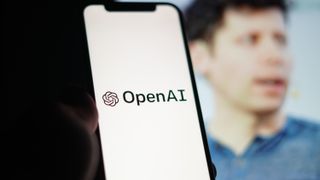
Good morning and welcome to our DeepSeek liveblog. There’s been a new twist in the story this morning – with OpenAI reportedly revealing it has evidence DeepSeek was trained on its model, which (ironically) could be a breach of its intellectual property.
That report comes from the Financial Times (paywalled), which says that the ChatGPT maker told it that it’s seen evidence of “distillation” that it thinks is from DeepSeek.
That process is common practice in AI development, but doing it to build a rival model goes against OpenAI’s terms of service. This was echoed yesterday by US President Trump’s AI advisor David Sacks who said “there’s substantial evidence that what DeepSeek did here is they distilled the knowledge out of OpenAI models, and I don’t think OpenAI is very happy about this”.
As always with AI developments, there’s a lot of smoke and mirrors here – but there is something pretty satisfying about OpenAI complaining about potential intellectual property theft, given how opaque it’s been about its own training data (and the lawsuits that have followed as a result).
Whatever the truth, this is clearly just the start of the DeepSeek story…
DeepSeek doesn’t pass Navy muster
The United States Navy has issued a new warning to sailors, warning against DeepSeek AI due to ‘security and ethical concerns,’ according to CNBC. It seems that the alert was issued by the U.S. Navy on Friday, January 24, 2025, which is a few days before the app ultimately paused new sign-ups and experienced an outage on Monday, January 27, 2025.
As reported by CNBC, the U.S. Navy warning reads, “We would like to bring to your attention a critical update regarding a new AI model called DeepSeek,” the email said. The memo said it’s “imperative” that team members do not use DeepSeek’s AI “for any work-related tasks or personal use.”
The U.S. Navy confirmed the notice’s authenticity and referred to its generative AI policy. The warning essentially amounts to a ban against DeepSeek AI and its various models, instructing the recipients to “refrain from downloading, installing, or using the DeepSeek model in any capacity.”
Seemingly, the U.S. Navy must have had its reasoning beyond the outage and reported malicious attacks that hit DeepSeek AI three days later.
President Trump says DeepSeek AI should be a ‘wake-up call’ for US AI companies

President Trump, only two weeks into his second term, has commented on DeepSeek, saying, “The release of DeepSeek AI from a Chinese company should be a wake-up call for our industries that we need to be laser-focused on competing to win because we have the greatest scientists in the world,” according to The Washington Post.
He described the launch of DeepSeek AI as a “wake-up call,” adding that competitors in the United States – potentially OpenAI, Nvidia, and Google – must be “laser-focused on winning.” Trump’s comments were also likely a reflection of the DeepSeek news’ impact on the US stock market. Most tech stocks slid, but AI GPU leader Nvidia had its worst day on record.
It’s an unsurprising comment, but the follow-up statement was a bit more confusing as President Trump reportedly stated that DeepSeek’s breakthrough in more efficient AI “could be a positive because the tech is now also available to U.S. companies” – that’s not exactly the case, though, as the AI newcomer isn’t sharing those details just yet and is a Chinese owned company.
Nvidia calls DeepSeek an ‘excellent AI advancement’
Beyond OpenAI’s Sam Altman sharing his thoughts about DeepSeek AI and promising much more from ChatGPT, Nvidia has also publicly commented, calling DeepSeek an “excellent AI advancement.”
The response came after yesterday’s record-breaking $600 billion share price drop, the largest drop the shares have ever seen and largely a result of DeepSeek’s performance and the cost of the AI model. Beyond being impressed by R1, it’s clear that Nvidia wants to remain a key part of the narrative.
The complete written statement reads, “DeepSeek is an excellent AI advancement and a perfect example of Test Time Scaling. DeepSeek’s work illustrates how new models can be created using that technique, leveraging widely-available models and compute that is fully export control compliant. Inference requires significant numbers of NVIDIA GPUs and high-performance networking. We now have three scaling laws: pre-training and post-training, which continue, and new test-time scaling.”
Who actually owns DeepSeek AI?

DeepSeek was founded in mid-2023 by the Chinese hedge fund manager Liang Wenfeng, who is the company’s CEO. Liang founded High-Flyer, a hedge fund that uses AI to create trading strategies, back in 2015 – then according to a Washington Post profile, used that experience to develop large language models with his new DeepSeek company.
How close are DeepSeek’s links to the Chinese government? Inevitably, the AI app’s newfound success has garnered a lot of new attention, but it apparently hasn’t always been considered an AI star inside China.
According to Matt Sheehan (an expert on China’s AI industry quoted in the Washington Post’s profile), DeepSeek was “not the ‘chosen one’ of Chinese AI start-ups” and that it “took the world by surprise, and I think to a large extent, they took the Chinese government by surprise”.
But DeepSeek is now far from an unknown – and it’ll be interesting to see if or how it distances itself from the Chinese government in order to allay those growing privacy fears.
Is DeepSeek safe to use?

We’ve done our own in-depth comparison of how DeepSeek compares to ChatGPT, but since then some privacy alarm bells have been sounded about the app.
As noted by the BBC, Australia’s science minister, Ed Husic, told ABC News earlier today there are lots of unanswered questions around “data and privacy management” with DeepSeek. “I would be very careful about that, these type of issues need to be weighed up carefully,” he cautioned.
DeepSeek’s privacy policy is quite open that “we store the information we collect in secure servers located in the People’s Republic of China”. That information includes your email address, phone number, date of birth and chat histories.
None of this is much different from the privacy policies of ChatGPT or Gemini, but the harvesting of that information in China – and the fact that it’s combined with “actions you have taken outside the service” from advertisers – is bound to keep those alarm ring bells ringing louder in the coming days.
Will the DeepSeek hype last?
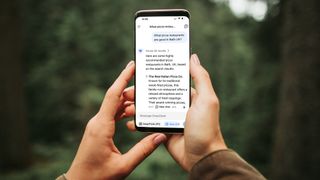
TechRadar’s Editor-at-Large Lance Ulanoff has written a fine takedown of the DeepSeek hype – questioning whether the chatbot, which isn’t yet multi-modal, is worthy of the column inches it’s getting and (quite reasonably) suggesting that it’s unlikely to last in the US, given TikTok’s recent woes.
Commenting on the share price drops of Nvidia and others he notes “with almost no information or real proof that DeepSeek and its investors are being transparent and truthful, investors have started pulling their AI dollars from the US stock market.”
Even if we do accept that DeepSeek is a breakthrough, there are understandable question marks about its longevity in the US. As Lance Ulanoff states “it doesn’t matter how good it is; this app will not survive in the current US climate”.
OpenAI’s Sam Altman responds

OpenAI’s Sam Altman has now publicly commented on DeepSeek for the first time, stating on X (formerly Twitter) that the AI model is “impressive” – and I can’t help but hear that in the voice of Patrick Bateman in the American Psycho business card scene.
But he was also typically bullish about OpenAI’s response, stating that “we will obviously deliver much better models” and that it’s “legit invigorating to have a new competitor”. Altman also doesn’t think the news changes the picture in terms of chips, stating that “more compute is more important now than ever before to succeed at our mission”.
The markets don’t seem to agree, with the chip-making giant Nvidia suffering the biggest one-day market value dive in US history yesterday.
A quick DeepSeek refresher
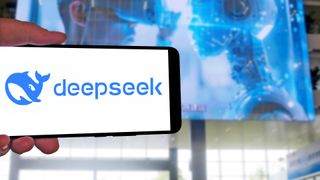
A bit confused about DeepSeek? Here’s a quick primer. The free AI chatbot was actually released on January 20, but has exploded in popularity over the past few days as tech fans realized its significance. As the venture capitalist Marc Andreessen noted on X (formerly Twitter), “Deepseek R1 is AI’s Sputnik moment”.
The app is currently top of the free charts on Apple’s App Store and Play Store in the US and many other countries, despite being made in China – which was the subject of a trade ban on advanced chips from the likes of Nvidia.
Ironically, it’s those trade restrictions that appear to have sparked the ingenuity behind of DeepSeek, which was created using a tiny amount of the enormous compute power that’s behind today’s major AI models.
Benchmark tests show that it can perform tasks like answering questions and generating code as well as the current top AI models around. However, you may have trouble creating a DeepSeek account – it was forced to pause sign-ups following a major cyber-attack.
Services Marketplace – Listings, Bookings & Reviews
